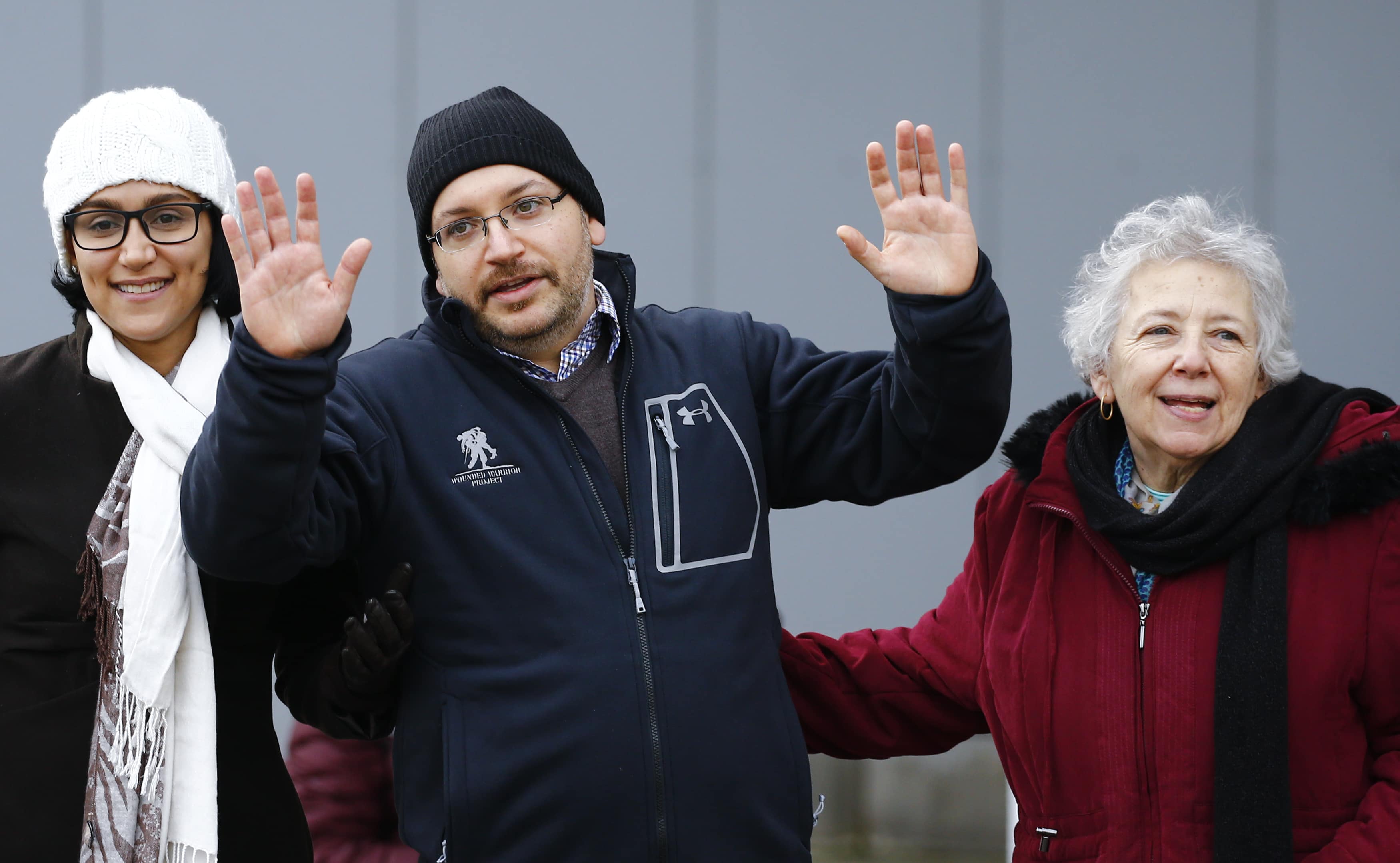Tehran bureau chief Jason Rezaian was freed on 16 January as part of a prisoner swap between the United States and Iran, and was flown out of the country on 17 January.
This statement was originally published on freemedia.at on 18 January 2016.
The International Press Institute (IPI) today welcomed the release of Washington Post journalist Jason Rezaian, who had been imprisoned in Iran since July 2014.
Rezaian, 39, was freed Saturday as part of a prisoner swap between the United States and Iran, and is reported to have left the country on Sunday. His release came hours before the United States and European countries lifted long-standing sanctions against Tehran as part of the nuclear agreement reached in summer 2015.
The Post’s Tehran bureau chief and a dual American-Iranian citizen, Rezaian was detained on July 22, 2014 and charged with espionage. In October 2015, following a closed-door trial, Iranian state television reported that Rezaian had been convicted by the Tehran Revolutionary Court, although details of the sentence remained unclear.
In a statement, Frederick J. Ryan Jr., publisher of The Post, confirmed that Rezaian had departed Iran together with his wife, Yeganeh Salehi, who was briefly detained along with her husband in 2014.
“We are enormously grateful to all who played a role in securing his release,” Ryan said. “Our deep appreciation also goes to the many government leaders, journalists, human rights advocates and others around the world who have spoken out on Jason’s behalf and against the harsh confinement that was so wrongly imposed upon him.”
IPI’s North American Committee also welcomed the news of Rezaian’s release by Iranian authorities.
“Though we cheer his release, it does not change the underlying damage to press freedom,” Martha Steffens, chair of the North American Committee, said. “Jason Rezaian was imprisoned on bogus charges, and had to endure 18 months of confinement, often in unbearable conditions. He never should have been detained at all.”
Steffens’ fellow member on the North American Committee’s board, Detroit Free Press columnist Rochelle Riley, added that she hoped Rezaian’s ordeal could “serve as a clarion call for all news organisations around the world to continue to shine a spotlight wherever necessary and to demand that journalists do their jobs without fear”.
Steffens, the SABEW Chair in Business and Financial Reporting at the University of Missouri School of Journalism and a former newspaper editor, was a signatory on a letter sent to U.S. Secretary of State John Kerry on Jan. 8 calling for more negotiations for Rezaian’s release.
IPI had repeatedly called for Rezaian’s release and, along with numerous other international organisations, criticised the apparently baseless charges against the journalist, as well as the lack of due process evident in the closed-door trials and limits on access to legal assistance. Various news sources have suggested that Rezaian had been detained longer than any other Western journalist in Iran.
In addition to Rezaian, Iran is reported to have released three additional U.S. citizens, all of whom also hold Iranian citizenship. In exchange, the U.S. freed seven Iranians who had been charged with sanctions violations, including a number of dual citizens, and rescinded international arrest warrants against 14 others living abroad. Iran’s decision to permit a fifth American citizen to depart the country was said to be unrelated to the prisoner exchange.
Whether Iran’s re-entry into the global economy and the apparent loosening of its status as a global pariah will translate into improved conditions for both foreign and Iranian journalists remains an open question. In April 2014, prominent Iranian journalist Mashallah Shamsolvaezin, in a speech accepting the IPI World Press Freedom Hero award in Cape Town, said that as many as 48 journalists languished behind bars in the country.
Last month, IPI hosted the Austrian premiere of the film “Rosewater”, which follows the story of Maziar Bahari, an Iranian-Canadian journalist who spent 118 days behind bars in Iran in 2009 for his efforts documenting protests that arose amid that year’s disputed re-election of then-president President Mahmoud Ahmadinejad.
Bahari himself joined the screening and spoke to participants about his campaign #journalismisnotacrime. The campaign aims to document human rights abuses related to criticism of the state and officials in Iran, raise awareness of the situation of press freedom in the country and support Iranian journalists by providing them with legal and psychological assistance.



